‘I love my community… now I’m making sure Keir Starmer wins the next election’
Former JLC and JLM man Adam Langleben sat down with Jewish News to discuss his new job as executive director of Progressive Britain
Lee Harpin is the Jewish News's political editor
When the Jewish community’s relationship with the Labour Party reached its lowest ebb, Adam Langleben was hit harder than most.
As the Jewish Leadership Council’s head of communications, and the Jewish Labour Movement’s longtime executive member and later national secretary, the 37 year-old was at the centre of planning the wider community’s response to the antisemitism crisis.
At the very the same time the East-Barnet born Labour man was seeking an overhaul of the leadership and change in direction of political party he had long held a deep affinity for.
It says much about the overall success of the battle waged both by the communal organisations, and by Jewish Labour members such as Langleben, that in September last year he announced he was standing down from both his JLC and JLM roles to begin a new job as executive director of Progressive Britain – a campaigning think-tank, closely connected to Keir Starmer and his battle to change Labour.

But speaking with the married, father-of-two at his new office in Vauxhall, south London, it is apparent that he has not decided to leave the eight years he spent working for the JLC behind him in his new role.
“I have still got enough of the community in my life, ” he tells Jewish News. “I send my son to a Jewish school, I’m an active member of Alyth synagogue.
“I love my community, but I didn’t see myself working within it forever. But I was offered this opportunity and I couldn’t turn it down.
“It’s an amazing opportunity to lead Progressive Britain, especially at this time.”
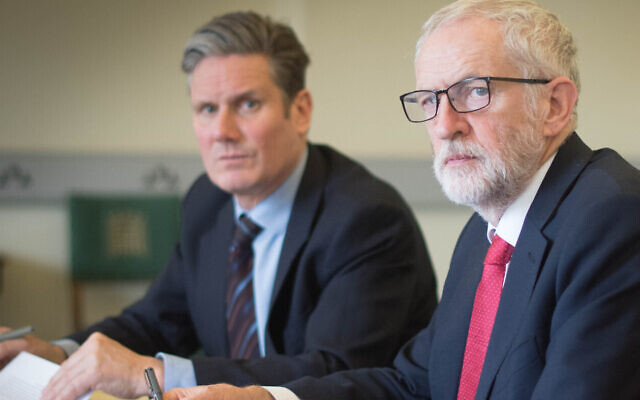
As an organisation Progressive Britain is the successor to Progress, the organisation that was closely associated with Tony Blair’s leadership campaign, and the Policy Network group which existed before that. All of these organisations were afforded considerable support from Jewish Labour supporters.
“I trust Keir Starmer to deliver, he has demonstrated that time and time again” says Langleben, when asked about the current Labour leader’s repeated claim to be transforming his party into a similarly electable force as that led by Blair.
“When 2019 happened my view was that it was going to take Labour ten years to rebuild. Not just because of the size of the Tory majority, but because of the mess the party was in.
“To remove antisemitism in the Labour Party was going to take such a huge cultural change, I felt it would take decades to do it. I was wrong.”
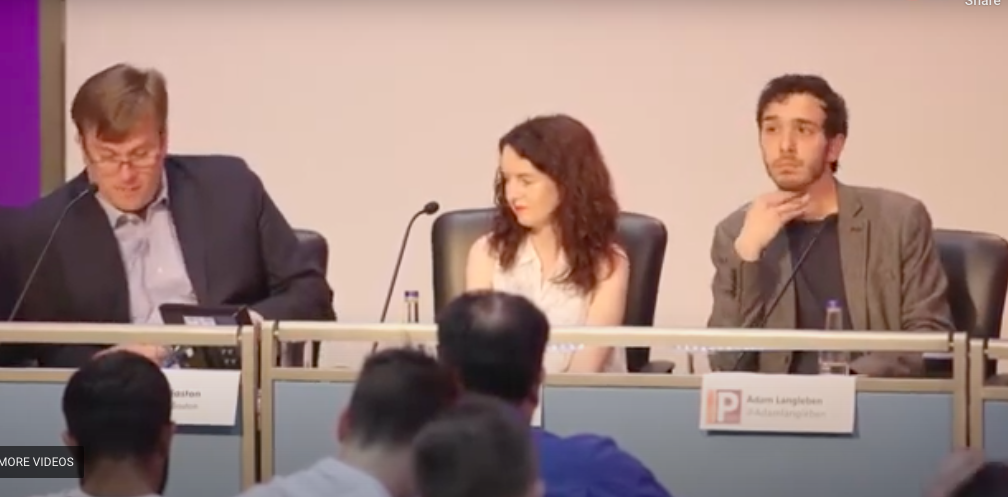
Through his work leading Progressive Britain, Langleben says it is now his job to ensure Labour remains under the control of “sensible people with a sensible programme” in order that it can convince the electorate it is ready to form the next government.
“We do a lot of work through our partnership with Labour First in the internal elections within the Labour Party to make sure moderates win,” he says. “All of the stuff the people wouldn’t ordinarily think about – national and regional committees – that’s really important work for us.
“If we lose control of these key parts of the party then there’s always the risk of bad things happening.”
Langleben, who also felt that time was right to move away from his JLM role, stresses: “Keir used the term ‘irreversible’. Our job is to make sure that the change that has happened in the Labour Party is irreversible, and we are making good progress. Of over 200 candidates selected, less than four were supporters of Corbyn. That’s the proof of change.”
Antisemitism, argues Langleben, does indeed continue to exist within the Labour Party, but he says “there is no part of society or in this country or abroad where you won’t find it anywhere.”
Again referencing what he says has been Starmer’s “great achievement”, Langleben suggests that levels of anti-Jewish racism are “no longer any higher than in the Conservative Party, in the Liberal Democrats.”
But he accepts it is “perfectly reasonable” that members of the Jewish community would choose to not believe his claim about similar levels of antisemitism across all mainstream parties.
“I think five years of Jeremy Corbyn is enough to leave a bad taste in anybody’s mouth,” he adds.

It is hard not to return to the bad old days of Corbyn when in Langleben’s presence. In May 2018, Langleben made national headlines after he was ousted as a councillor in Barnet’s West Hendon ward at the local elections.
The voters had “punished” the Corbyn led party, Langleben said at the time over the leadership’s failure to face up to the antisemitism issue, a view he still continues to hold today.

“I’d given the best of a decade of my life to Labour” he says now of the moment he felt he had to follow the lead of ex-MP Luciana Berger and leave the party.
“Every weekend I went out there campaigning, the Labour Party becomes like a family, your life ends up revolving around Labour. It’s not quite like other political parties.
“So to me, that decision was a really big deal.”
There were further, quite disgusting, incidents to follow as well. When in February 2019 Langleben announced he was quitting the party he had first joined 13 years earlier over the continued failure to tackle antisemitism, Langleben recalled how he received a phone call from a former landlord telling him a message had been left at the front door- along with a pile of dog poop.
“It was awful,” he recalls now. “To have daily abuse, and at its worst case having threats on a daily basis. After I left the party it was having dog poop left on the doorstep of my old house.
“There was this note. It’s hard, over time, especially when the fortunes of the Labour Party and the experience of the party have changed so significantly, it’s hard to remember how bad it actually was.”
“Another was in 2021 when a now expelled member was shouting and berating me hysterically in my local high street. At one point I thought he was about to punch me.”
Key to bringing about the momentum for change in the party, just ahead of Starmer becoming leader, was the report delivered by the equalities watchdog, the EHRC, into antisemitism in Labour under Corbyn.
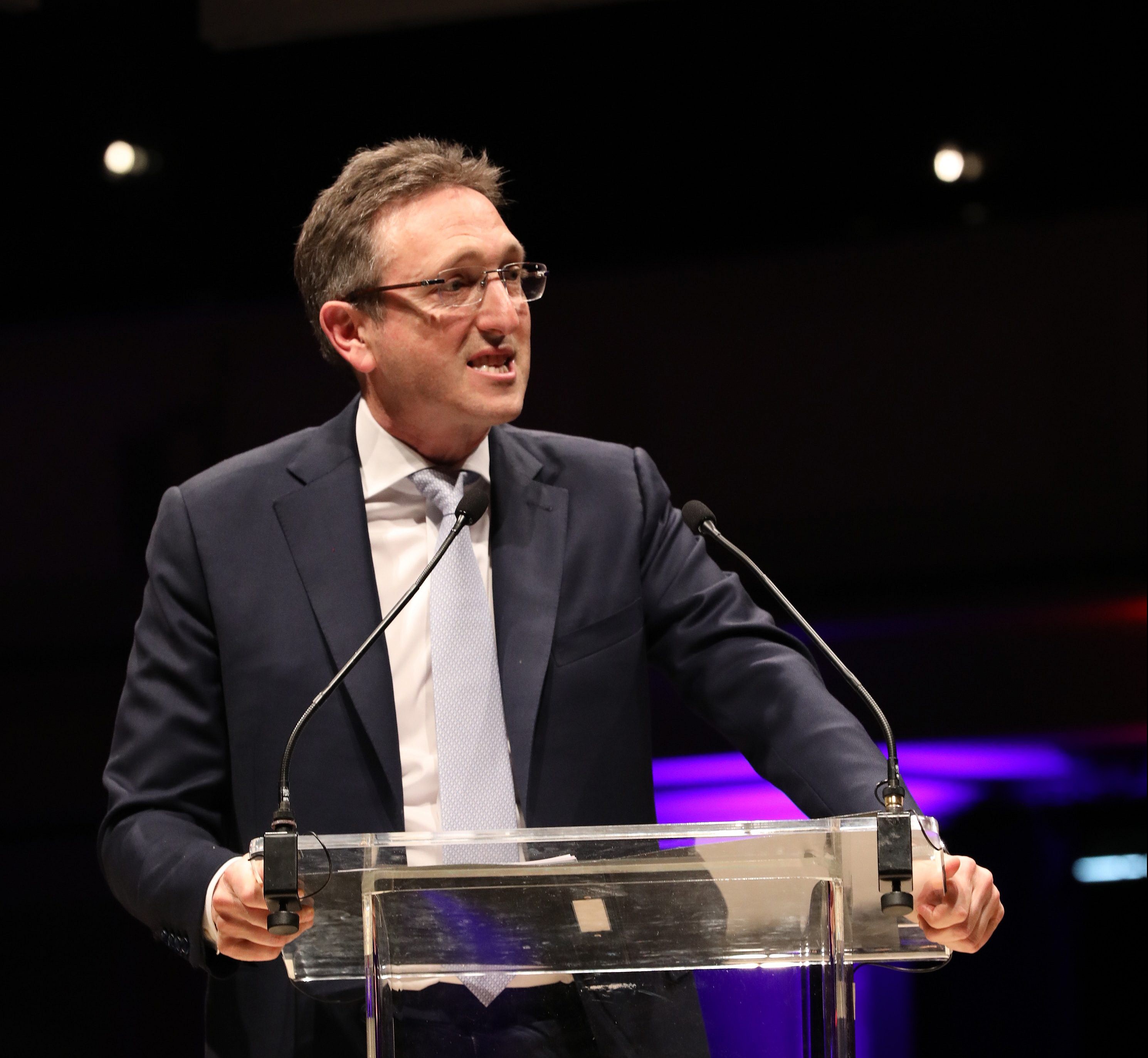
It was Langleben, alongside former JLM national secretary Peter Mason, and staffers Ella Rose and Rebecca Filer who paved the way for this damning report.
“To be able to go and build a database of witness or victim statements from Labour members, I think around one thousand in total,” he recalls of the dossier JLM submitted to the watchdog.
“There’s quite a few that’s stuck with me ever since. But to really get the EHRC to take the issue of antisemitism in the party seriously, collating that evidence was absolutely essential.
“We were also in the unique position of being able to talk to whistleblowers working in Labour, who were members of staff who were convinced to do the right thing.
“The vast majority of these were not Jewish. We ended up having around 60 whistleblowers who were current or former staff. There were some who were working in Jeremy Corbyn’s office at that time. They have direct sight over what was being said, and what was being done.”
But Langleben is also eager to praise the communal organisations, particularly the JLC, for supporting both him and Mason, as they spent months behind the scenes working on the arduous task of preparing the credible JLM submission to the EHRC that ensured the watchdog eventually progressed with their investigation.
“Ultimately with my role at JLM, we always sought to consult the JLC and Board of Deputies,” says Langleben now. “So our successful referral to the EHRC, that was done with huge support from the JLC in particular. They enabled it to really happen.”
Langleben suggests that during this period, and the community’s fight back against antisemitism during the Corbyn era was “a really good example of good clear, open communication and partnership between organisations that historically haven’t always had that.”
He is also quick to praise the bosses he worked under during his eight years at the JLC – from Simon Johnson and Jonathan Goldstein, and more recently both Keith Black and Claudia Mendoza.
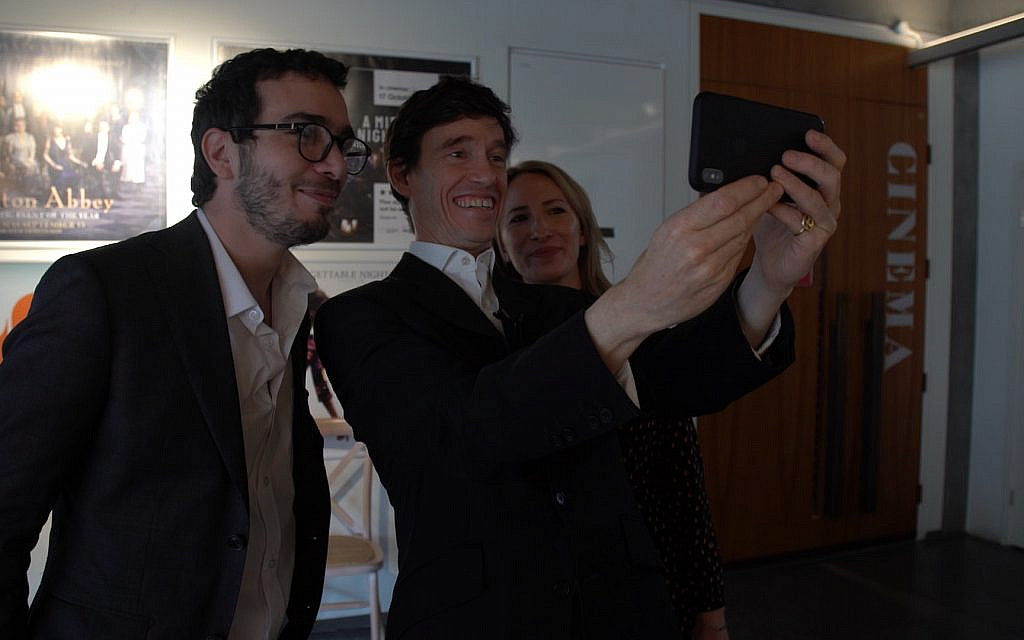
All he says are “genuinely committed to the community”, and in ensuring it remains “vibrant and confident” here in the UK. “It was a genuine privilege to work under all of them, ” he says.
The JLC’s strength, he suggests, is that the organisation can provide the “strategic and long term focus” that other organisation’s who are required to make more immediate decisions cannot.
The JLC’s strength can also be found in the fact that many of its member organisations can offer genuine expertise from their bases in the communal charity sector.
Former chair Goldstein, he also recalls, was also one of the first senior communal figures to offer his support to current Labour leader Starmer, at a time when others were still hesitant to return.
Meanwhile, Langleben’s own return to the party he had quit two years earlier came in August 2021, with his confidence in Labour’s direction now restored under its new leadership.
Asked for his views on the overall leadership of this country’s Jewish community, especially in the aftermath of the October 7th Hamas terror attack, Langleben is quick to reject claims that organisations were ill prepared.
“What happened on October 7th is unprecedented,” he says. “Not just because of there being a significant event in Israel, but because of the scale of the knock on effects on Jewish communities all across the diaspora.

“Every single community is struggling to deal with this because the impact is so wide-ranging and vast. Nobody could fully prepare for what has happened.
“Like a five or six hundred per cent increase in antisemitic attacks, who could possibly mitigate against that. America, which we all thought was a country that Jews could live within in a true golden age, people there are feeling exactly what we are feeling here.
“So I don’t think criticism (of the UK communal organisation’s response to October 7 ) is actually fair.”
Langleben admits to paying some attention still to the on-going campaigning ahead of May’s Board of Deputies presidential election, with Marie van der Zyl stepping down after serving for two terms.
“I actually watched the first hustings,” he says. “I emailed my deputy at my synagogue in line with what I saw. The Board has a special relationship with the community, but what I saw was low energy. I hope for more.
“Based on what I have seen, and on my experience over a decade in the community, my opinion is for many reasons that Amanda Bowman is the best candidate.”
But Langleben also expresses greater concern about what he suggests is a rise of anti-Muslim sentiment in the community, especially over the past six months.
“October 7th has radicalised all sorts of groups across society,” he reflects. “It has radicalised antisemites, it has radicalised activists who had ideas in their head they weren’t really aware of, unconscious bias against Jews.
“But we also shouldn’t run away from the fact that it’s also woken up bigotry and intolerance inside our own community towards others. And it is greater than before.
“I know from my own social media feeds of people I’ve known since childhood. I’ve seen some pretty extreme behaviour. Some vile language which I wouldn’t have seen a year or two ago.
“Some of the commentary in recent weeks about Ramadan lights in London are outrageous. Ultimately we live in a society where Jews, Muslims, Hindus live together.
“Last week I attended a Hindu Holi event, I took my son to a Purim party. I then attended an iftar at a synagogue in Edgware. I could have quite easily gone to a church service for Easter. That’s the society we live in. And that’s a good thing.”
But asked about the growing influence of figures like Douglas Murray on some sections of the community Langleben says “we need to be very careful of hugging figures verging on the extreme right.”
He adds: “I’m not saying they are far-right, but the language and the rhetoric they use has the potential to incite others. We have to be really, really clear on that.
“In my view synagogues and organisations should try to reduce tensions with the speakers they bring in. Our Jewish communal organisations are also responsible citizens in Britain, and have a duty to play their part.”
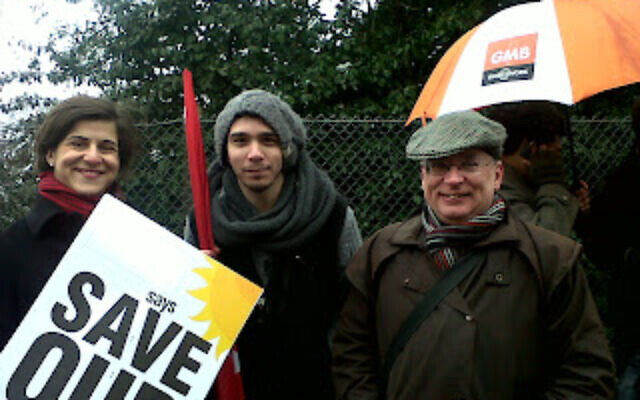
With a general election expected before the end of the year, and on a more positive note, Langleben is convinced the community can play a vital political role.
He believes the past 14 years of Conservative government have “left the country completely broken” and is convinced that under Starmer the “deep roots” that the Jewish community once had in his party have been restored again.
“We know the Jewish community are capable of voting Labour in very high numbers,” says Langleben, reflecting on the years of government under Blair, and also Gordon Brown.
“Our community is not a community of Labour voters or of Conservative voters. The biggest chunk are swing voters. It just so happens that the national swing since 2010 has been with the Tories.
“I’m actually pretty confident that Labour will win the vote of significant chunks of the Jewish community at the next election.”

Thank you for helping to make Jewish News the leading source of news and opinion for the UK Jewish community. Today we're asking for your invaluable help to continue putting our community first in everything we do.
For as little as £5 a month you can help sustain the vital work we do in celebrating and standing up for Jewish life in Britain.
Jewish News holds our community together and keeps us connected. Like a synagogue, it’s where people turn to feel part of something bigger. It also proudly shows the rest of Britain the vibrancy and rich culture of modern Jewish life.
You can make a quick and easy one-off or monthly contribution of £5, £10, £20 or any other sum you’re comfortable with.
100% of your donation will help us continue celebrating our community, in all its dynamic diversity...
Engaging
Being a community platform means so much more than producing a newspaper and website. One of our proudest roles is media partnering with our invaluable charities to amplify the outstanding work they do to help us all.
Celebrating
There’s no shortage of oys in the world but Jewish News takes every opportunity to celebrate the joys too, through projects like Night of Heroes, 40 Under 40 and other compelling countdowns that make the community kvell with pride.
Pioneering
In the first collaboration between media outlets from different faiths, Jewish News worked with British Muslim TV and Church Times to produce a list of young activists leading the way on interfaith understanding.
Campaigning
Royal Mail issued a stamp honouring Holocaust hero Sir Nicholas Winton after a Jewish News campaign attracted more than 100,000 backers. Jewish Newsalso produces special editions of the paper highlighting pressing issues including mental health and Holocaust remembrance.
Easy access
In an age when news is readily accessible, Jewish News provides high-quality content free online and offline, removing any financial barriers to connecting people.
Voice of our community to wider society
The Jewish News team regularly appears on TV, radio and on the pages of the national press to comment on stories about the Jewish community. Easy access to the paper on the streets of London also means Jewish News provides an invaluable window into the community for the country at large.
We hope you agree all this is worth preserving.






















